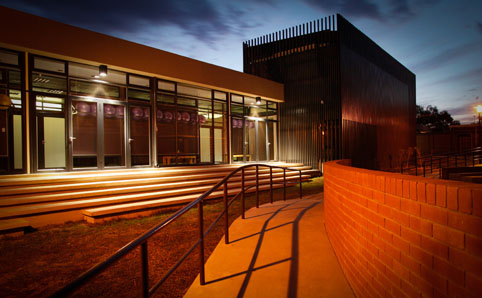Latest News Archive
Please select Category, Year, and then Month to display items
12 October 2020
|
Story Dr Cindé Greyling
|
Photo Supplied
 Exercise and nutrition can work wonders for your mental health – you don’t even have to ‘feel like’ or ‘enjoy’ moving around and eating well for it to work – it does its thing anyway.
Exercise and nutrition can work wonders for your mental health – you don’t even have to ‘feel like’ or ‘enjoy’ moving around and eating well for it to work – it does its thing anyway.
Nowadays, people talk about mental health like it is the common cold – which is good! But do you know what it really means? Being mentally healthy does not only refer to the absence of a mental illness but includes your emotional and social well-being. One would almost want to add physical well-being too, since a healthy body does indeed support a healthy mind. However, since so many people consider themselves ‘mental health experts’, some myths have been sold as truths.
Myth #1 – You are doomed.
Nope. Never. You are never doomed. There is always help. Mental-health therapies range from self-help, talk therapy, medication, to hospitalisation in some cases. Somewhere on this spectrum of treatments, there will be something that works for you. But you must be willing to get the help and do the work. For starters, exercise and nutrition can work wonders – you do not even have to ‘feel like’ or ‘enjoy’ moving around and eating well for it to work – it does its thing anyway.
Myth #2 – It won’t affect you.
It may. Research suggests that one in five people may suffer from a mental illness at some point in their lives. Being well now does not mean that it will stay that way. Biological and environmental factors both impact your mental health. Hopefully not, but at some point, you may experience an event that affects your mental health.
To remain integrated in a community is always beneficial
for anyone suffering from a mental or physical condition.
Myth #3 – Someone struggling with mental health must be left alone.
Hardly! To remain integrated in a community is always beneficial for anyone suffering from a mental or physical condition. You do not need to fix them, but to remain a friend. Continue to invite them, even if they decline. Do not judge, and do not try to understand. Just stay around.
Go and be kind to yourself, and to those around you.
Kovsies first with Clinical Skills Centre for the allied health professions
2011-10-27
 |
|
First Clinical Skills Centre in South Africa on our Bloemfontein Campus
Photo: Rian Horn
|
The School for Allied Health Professions within the Faculty of Health Sciences at the University of the Free State (UFS) recently opened the first Clinical Skills Centre for the allied health professions in South Africa.
The multifunctional centre will be used for the practical training of undergraduate students in the allied health professions, which include occupational therapy, physiotherapy, dietetics and optometry.
The concept for the Clinical Skills Centre was the brainchild of the Head of the School for Allied Health, Dr Santie van Vuuren. According to Dr Van Vuuren, the Clinical Skills Centre not only addresses specific needs within the South African context, but also fits in with the current curriculum of the programmes within the School for Allied Health. She says the Centre is a symbol of quality and excellence in the training of undergraduate students.
The Clinical Skills Centre was designed in such a way that it can be converted into one or more lecture halls. It boasts the latest technology such as interactive computer screens which can be used for lectures. Most of the equipment students will use during their practical training is on wheels and can be used between different classes. The centre also has a stair lift attached to a banister to transport disabled people from one floor to another in his/her wheelchair.
Media Release
27 October 2011
Issued by: Lacea Loader
Director: Strategic Communication
Tel: 051 401 2584
Cell: 083 645 2454
E-mail: news@ufs.ac.za